While it's standard practice for political candidates to release books that tout their ideological and community-based bona fides, New York City Council Speaker and mayoral hopeful Christine Quinn, 46, has written a memoir that covers some very personal ground, including painful memories of losing her mother to breast cancer as a teen, subsequent recoveries from disordered eating and binge drinking, and her coming out to her loving but skeptical father.With Patience and Fortitude (William Morrow) is a self-portrait that complicates Quinn's image as a tough-talking New York dame.
MARIE CLAIRE: How does your potential "firstness" influence your campaign strategy?
CHRISTINE QUINN: I'm me! I'm Irish and I'm a woman and a lesbian. That's just who I am. If you spend too much time thinking about how your gender or sexual orientation affects you, it takes up an important part of your brain, as opposed to just going out there and doing what you love to do.
MC: Your identity might affect the way you're received. For example, The New York Times recently ran a piece about your hot temper, a quality that might not have been remarked upon were you male.
CQ: Look, I am a very pushy broad, and I say that with great pride. My late mother was abundantly clear: My sisters and I were to figure out what we were to do with our lives and we were to do it exceptionally well. The most significant thing about my outlook has been the effect of my mother dying when I was a teenager. I don't believe that you have an open-ended amount of time, so I push really hard.
MC: When the Times ran the story about your anger, I wondered: Is impoliteness a prerequisite for the job of mayor of New York?
CQ: I'm polite! Being pushy and being impolite are two different things. I always say "thank you"; I always say "please."
MC: Your memoir is revealing about your sexual awakening, your struggle with bulimia, a stint in rehab. Why expose so many vulnerabilities going into a political race?
CQ: If a young woman can read this book and see that a challenging childhood can lead to an amazing life beyond her wildest dreams—that's what the story of my life is. I'd also like to share the message with girls and young women that they need to let go of the goal of perfection.
MC: When you met your wife, attorney Kim Catullo, she had no interest in going out with a politician because she's so private. How does she feel about this campaign?
CQ: Yes, Kim told the friend who set us up on a blind date that she would never go out with a politician. Now she worries sometimes—that the things I push to
do will be difficult. But Kim is a thousand percent immovably supportive of me.
MC: Your dad transformed from someone who didn't want to acknowledge your homosexuality to someone who marches in the Pride parade. Did his evolution on gay rights mirror the nation's?
CQ: My father's evolution is something he deserves an amazing amount of credit for. It also speaks to the power of people sharing who they are with the people they know and love, and how that has created an enormous change.
Stay In The Know
Marie Claire email subscribers get intel on fashion and beauty trends, hot-off-the-press celebrity news, and more. Sign up here.
MC: You write that as a kid, "biographies of people who changed the world were everything to me." Do you feel like your becoming mayor of New York could make an impact on the world?
CQ: Where New York leads, the country follows. Second to the president of the United States, the bully pulpit of the mayor of the city of New York is the biggest and strongest. So what we do right around affordable housing, reducing unemployment, reducing homelessness—those are going to be successes that I hope will resonate through every city in America.
-
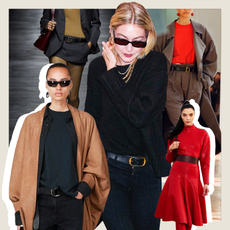 The Most Coveted Designer Belts Are Also the Most Unrecognizable
The Most Coveted Designer Belts Are Also the Most UnrecognizableBuck-up. There's a fierce appetite for this luxury IYKYK accessory.
By Julia Marzovilla Published
-
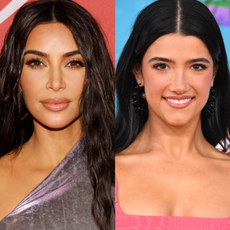 Charli D'Amelio Says Kim Kardashian "Inspired" Her to Work on Prison Reform
Charli D'Amelio Says Kim Kardashian "Inspired" Her to Work on Prison ReformThe social media star has partnered with REFORM Alliance.
By Iris Goldsztajn Published
-
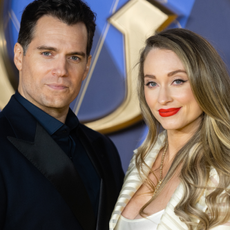 Henry Cavill and His Girlfriend Natalie Viscuso Are Expecting Their First Child
Henry Cavill and His Girlfriend Natalie Viscuso Are Expecting Their First ChildCongratulations are in order!
By Iris Goldsztajn Published
-
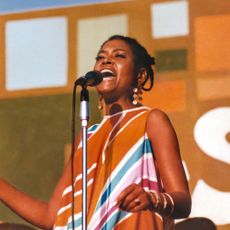 Documentaries About Black History to Educate Yourself With
Documentaries About Black History to Educate Yourself WithTake your allyship a step further.
By Bianca Rodriguez Published
-
 'Ginny & Georgia' Season 2: Everything We Know
'Ginny & Georgia' Season 2: Everything We KnowNetflix owes us answers after that ending.
By Zoe Guy Last updated
-
 'Firefly Lane' Season 2: Everything We Know
'Firefly Lane' Season 2: Everything We KnowIn the immortal words of Tully Hart, "Firefly Lane girls forever!"
By Andrea Park Published
-
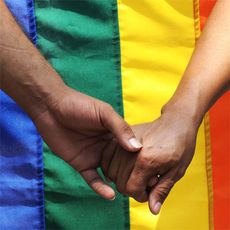 31 Different Pride Flags and What Each Stands For
31 Different Pride Flags and What Each Stands ForInclusivity matters.
By Katherine J. Igoe Published
-
 'Bridgerton' Season 2: Everything We Know
'Bridgerton' Season 2: Everything We KnowThe viscount and his new love interest hit Netflix at the end of March.
By Andrea Park Published
-
 'Bachelor In Paradise' 2021: Everything We Know
'Bachelor In Paradise' 2021: Everything We KnowIt's back, baby!
By Andrea Park Published
-
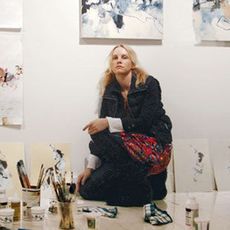 More Than A Pretty Face: Anna Schuleit
More Than A Pretty Face: Anna SchuleitGerman-born artist Anna Schuleit went from anonymous to Einstein virtually overnight, thanks to a call from the MacArthur Foundation announcing that she'd won a 2006 "Genius" grant for $500,000.
By Katherine Turman Published
-
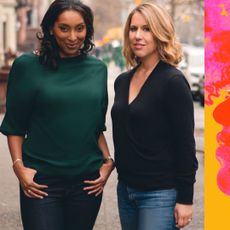 In 'We Are Not Like Them' Art Imitates Life—and (Hopefully) Vice Versa
In 'We Are Not Like Them' Art Imitates Life—and (Hopefully) Vice VersaRead an excerpt from the thought-provoking new book. Then, keep scrolling to discover how the authors, Jo Piazza and Christine Pride, navigated their own relationship while building a believable world for Riley and Jen—best friends, one Black, one white, dealing with the killing of an unarmed Black boy by a white police officer.
By Danielle McNally Published